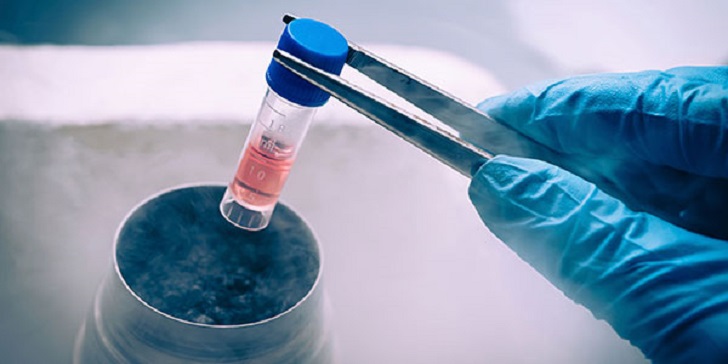Frozen eggs are literally banked for use in the future when the time is right to have a family. It’s an artificial way of fertility preservation, in attempts to negate the natural fertility decline with age. This lessens the pressure on women to conceive within certain age limits.
Egg freezing was initially considered experimental some years back. But the safety of the process has since been confirmed, and there are now hundreds of children all over the world who have been born from frozen eggs. Many fertility authorities would not hesitate to support egg freezing if they can find justifiable reasons.
Some women will have medical reasons that warrant consideration of egg freezing. The obvious reason is when a diagnosis of cancer is made at a young age, necessitating chemotherapy and radiotherapy which may prematurely damage ovarian function. In such cases, egg freezing prior to treatment provides a backup for future childbearing. There are other medical conditions that may lead to premature ovarian failure prior to childbearing, and may also warrant precautionary egg banking.
Egg freezing for social reasons is still somewhat controversial. You may find yourself rapidly advancing in age, with no foreseeable prospect of starting a family anytime soon. You could, therefore, make a case for preserving your fertility if creeping towards the mid-thirties, when your fertility potential gets onto an accelerated and irreversible decline. Often education, career, and changing social circumstances are the main contributing factors to delayed childbearing. And that’s where Google and Facebook women come in, they can freeze their eggs and pursue their careers without undue worries about future fertility.
You will need to go through some fertility interventions in order to freeze your eggs. It’s both an expensive venture and not entirely risk-free. The quality of the eggs you freeze will be better if you get them banked below the age of 35. If you already have a partner, freezing fertilized eggs (embryos) may be better. It may not be immediately clear to you how long you would wish to keep your eggs frozen, or if you will ever use them at all. But the comfort of banked eggs may enhance your confidence into concentrating on other ventures.
Having frozen eggs does not necessarily guarantee future fertility though. Other changes occurring in your aging reproductive system also come into play. The older you will be when you eventually decide to use your frozen eggs, the more pregnancy risks you will be predisposed to. You need to take many factors into consideration when contemplating egg freezing purely for social reasons. What would happen if you decided to concurrently have a family whilst still pursuing other self-preservation ambitions? This way, you might end up with the best of both worlds. Make your choice.
Egg freezing was initially considered experimental some years back. But the safety of the process has since been confirmed, and there are now hundreds of children all over the world who have been born from frozen eggs. Many fertility authorities would not hesitate to support egg freezing if they can find justifiable reasons.
Some women will have medical reasons that warrant consideration of egg freezing. The obvious reason is when a diagnosis of cancer is made at a young age, necessitating chemotherapy and radiotherapy which may prematurely damage ovarian function. In such cases, egg freezing prior to treatment provides a backup for future childbearing. There are other medical conditions that may lead to premature ovarian failure prior to childbearing, and may also warrant precautionary egg banking.
Egg freezing for social reasons is still somewhat controversial. You may find yourself rapidly advancing in age, with no foreseeable prospect of starting a family anytime soon. You could, therefore, make a case for preserving your fertility if creeping towards the mid-thirties, when your fertility potential gets onto an accelerated and irreversible decline. Often education, career, and changing social circumstances are the main contributing factors to delayed childbearing. And that’s where Google and Facebook women come in, they can freeze their eggs and pursue their careers without undue worries about future fertility.
You will need to go through some fertility interventions in order to freeze your eggs. It’s both an expensive venture and not entirely risk-free. The quality of the eggs you freeze will be better if you get them banked below the age of 35. If you already have a partner, freezing fertilized eggs (embryos) may be better. It may not be immediately clear to you how long you would wish to keep your eggs frozen, or if you will ever use them at all. But the comfort of banked eggs may enhance your confidence into concentrating on other ventures.
Having frozen eggs does not necessarily guarantee future fertility though. Other changes occurring in your aging reproductive system also come into play. The older you will be when you eventually decide to use your frozen eggs, the more pregnancy risks you will be predisposed to. You need to take many factors into consideration when contemplating egg freezing purely for social reasons. What would happen if you decided to concurrently have a family whilst still pursuing other self-preservation ambitions? This way, you might end up with the best of both worlds. Make your choice.

